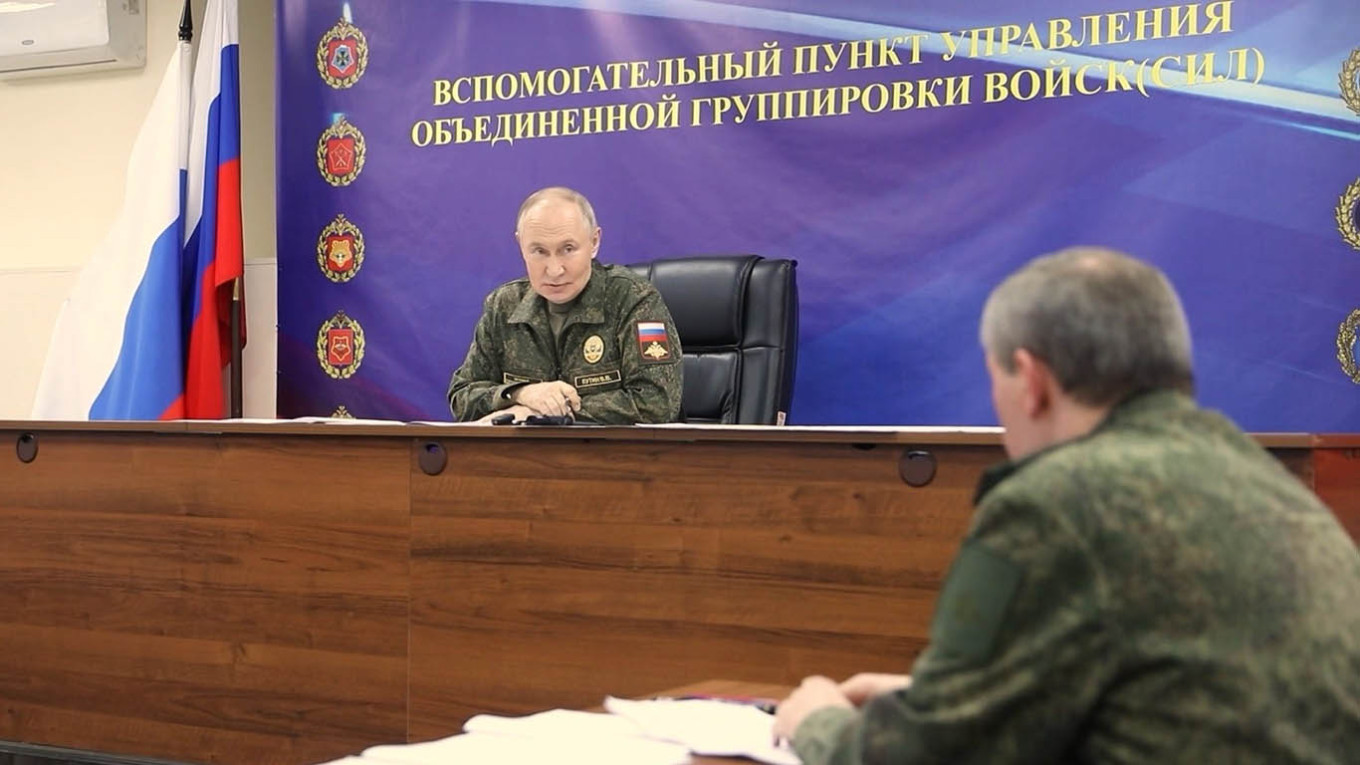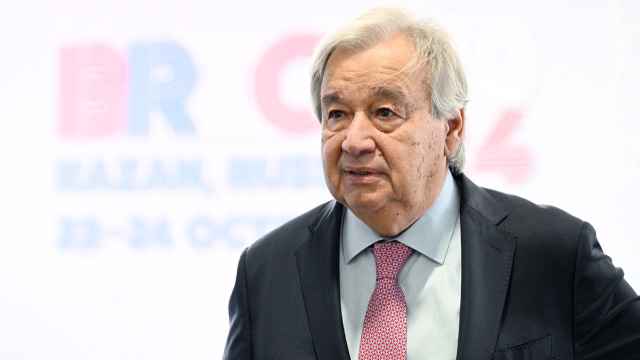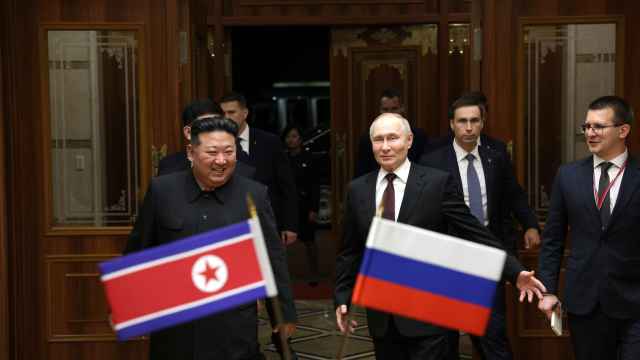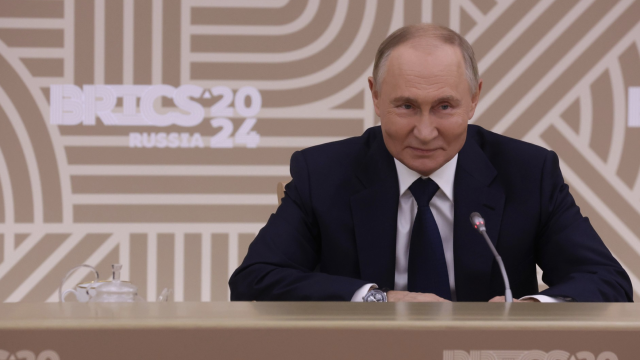Russian propagandists are trumpeting the “successful test” of the Burevestnik missile — a cruise missile with a nuclear-powered engine that supposedly gives it unlimited range. Similar claims of wonder weapons have been made before and each time they should first be treated as an element of a political game.
Any serious unfriendly move by the United States or other Western countries traditionally elicits a response from the Kremlin. Such demonstrations are intended to show that Russia is always ready to answer symmetrically or even asymmetrically. That has happened repeatedly. Recently, after Donald Trump announced the dispatch of two U.S. submarines to Russian waters, Moscow declared it was abandoning its unilateral moratorium on deploying intermediate and shorter-range missiles.
Then, as now, the point was not military logic but to demonstrate that Russia is not afraid and has the means to respond. Trump himself apparently didn’t fully grasp what the Kremlin meant, but the Russian side reported “symmetrical measures.” Notably, Trump recently referenced the submarine episode again while commenting on the news about the Burevestnik, saying Putin would be better off negotiating for peace than testing missiles, because Washington has a submarine just off Russia’s shores.
Still, even in that American politician’s remark, there is a grain of rationality: Trump is showing that nuclear threats cut both ways. Anyone who resorts to nuclear blackmail will inevitably be met with promises to respond in kind.
Looking at the situation as a whole, it becomes clear that the announcement of a test of a groundbreaking new missile was not accidental. It timed strikingly well with Washington’s imposition of new sanctions on Russian oil companies and with NATO’s Steadfast Noon nuclear exercise.
It is tempting to link these events and see Burevestnik as a propaganda response to a shift in U.S. policy — from dialogue with Russia to tougher pressure.
Against that backdrop, Moscow wants to demonstrate that it can still bend the world to its will.
But behind these loud declarations, there is, as the filmmaker Nikita Mikhalkov might put it, a “ringing emptiness.” Despite the fantastic tales of Kirill Dmitriev and other official spokespeople about “incredible prospects for cooperation,” like tunnels under the Bering Strait, Russia has no real economic trump cards left. Only the old, time-eaten argument remains — the threat of nuclear weapons.
The Burevestnik is presented as a missile with “unlimited range” and the ability to “stay aloft for weeks and months.” A basic understanding of military principles exposes why this idea adds little technical or operational value.
A cruise missile is, by design, a single-use device. Its mission is simple — strike a target, or if that is impossible, fall to earth or self-destruct. Here, a logical collision arises.
Unlike aircraft, cruise missiles cannot return to their base if an order is rescinded. Therefore, the act of launching it already signifies intent to strike. In an escalation scenario, such a launch — especially on a large scale — will inevitably be perceived by the adversary as the beginning of an attack.
Here, the Burevestnik becomes a metaphor — a true storm petrel, a harbinger of disorder.
Any rational opponent detecting the launch of a nuclear-powered cruise missile would be compelled to treat it as the start of war and could carry out a preemptive strike, including with conventional intercontinental ballistic missiles. As a result, the Burevestnik loses whatever meaning it might have as a retaliatory weapon and becomes a weapon of self-destruction.
Thus, what the Kremlin propaganda presents as the balance of power tipping in Russia’s favor actually pushes toward its breakdown. By launching such missiles, Russia does not strengthen deterrence — it increases the probability of a preemptive strike against itself.
Burevestnik may have been conceived as a retaliatory weapon — a missile to strike after Russia has already been devastated in a global exchange of nuclear blows. But even in that scenario, its purpose is doubtful.
After an exchange of nuclear strikes, when the U.S., Russia, and probably Europe lie in ruins, the buzzing Burevestniks would change nothing. They could neither alter the outcome nor provide any strategic advantage. This weapon belongs to belated symbolism rather than to real efficacy. In that sense, the Burevestnik is the embodiment of the kind of weapon you create when you know you’re reaching the end of the road: expensive, hazardous and essentially useless, created so one can at least say people are afraid of you, even if you have nothing else.
One could argue that first, Russia will blind the U.S. missile-attack warning system, allowing them to surreptitiously launch Burevestniks that will creep and sadly make their way to unsuspecting America.
But attempts to disable American satellites would be perceived as a direct attack on the United States. In the logic of nuclear deterrence, destroying satellites is tantamount to signaling preparation for a strike. That means even preparations for employing the Burevestnik could provoke war.
Therefore, the Burevestnik appears less as a technical breakthrough and more as a product of propaganda and desperation. It symbolizes not strength but weakness: the Kremlin’s lack of other instruments of political influence — aside from threats.
Even if we accept Moscow’s claims about the missile’s capabilities, its military and strategic rationale is highly dubious. It does not enhance Russia’s security; on the contrary, it makes Russia more vulnerable.
The test is another attempt by the Kremlin to show it can still answer an “unfriendly turn” by Washington. If that requires inventing a monstrous and senseless weapon, it means the Kremlin has no other arguments left.
A Message from The Moscow Times:
Dear readers,
We are facing unprecedented challenges. Russia's Prosecutor General's Office has designated The Moscow Times as an "undesirable" organization, criminalizing our work and putting our staff at risk of prosecution. This follows our earlier unjust labeling as a "foreign agent."
These actions are direct attempts to silence independent journalism in Russia. The authorities claim our work "discredits the decisions of the Russian leadership." We see things differently: we strive to provide accurate, unbiased reporting on Russia.
We, the journalists of The Moscow Times, refuse to be silenced. But to continue our work, we need your help.
Your support, no matter how small, makes a world of difference. If you can, please support us monthly starting from just $2. It's quick to set up, and every contribution makes a significant impact.
By supporting The Moscow Times, you're defending open, independent journalism in the face of repression. Thank you for standing with us.
Remind me later.








